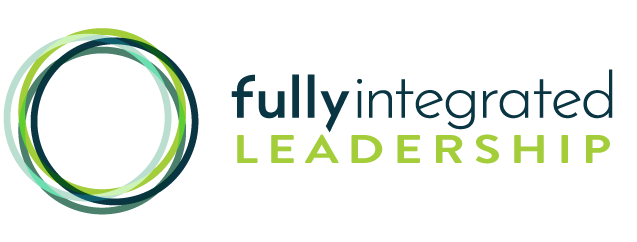I’ve been noticing lately how much I am trying to control things…my emotions, others’ emotions, my thoughts, my client’s learning/development, Colden’s learning, the weather, the garden. So much to control, so little time! Ultimately, what I am facing is a lot of uncertainty with the COVID-19 situation and a desire to try to control as much as I can in the face of such an uncontrollable situation. This got me curious, as usual, so I did some research to understand why I, and others, grasp for control, especially in the face of uncertainty. It led me to some interesting findings that I thought I would share with this community because I am seeing patterns across my clients, this community, my family and my friends that seems to point to the same issue…we are all feeling uncertain and grasping for control.
Is control an illusion?
In the 1970s, a researcher from UCLA named Ellen Langer, demonstrated evidence for a phenomenon she called “the illusion of control.” Since then, multiple research studies have corroborated her findings in different experiments. Participants in a lottery believe they have a higher percentage of winning if they get to pick the numbers; people believe there is a lesser chance of getting into a car accident if they are driving than if they are in the passenger seat; in a game of Craps, gamblers believe if they throw the dice harder they will get higher numbers, believing somehow there is skill in controlling their fortune.
Why do we live under this illusion?
The desire to control is hard-wired into our psyche, and from an evolutionary perspective it makes sense why this is the case. If our goal as early humans was to live long enough to reproduce and expand our bloodline, it would make sense that those who could minimize the uncertainties were more likely to thrive. We also had a strong desire to exercise power as it was people in positions of power who were protected, kept safe, fed, and sheltered by others in the tribe or clan. Early humans came to understand that it was those who seemed most in control, those who could reduce the uncertainties, were elevated into positions of power. Today, we continue to celebrate the leader/person who seems to have their Sh*! together, so we operate under this illusion because there are rewards/incentives for doing so.
And why is this a problem?
Today, the VUCA (Volatile, Uncertain, Complex, Ambiguous) world presents so many uncertainties, yet the illusion of control continues and is perhaps even growing (especially in leaders). Research continually shows that intelligence and reason notwithstanding, people often believe they have more control over events in their lives, even when such control is impossible. Learning to recognize this habit of mind is essential because there is actually a constriction of creativity when we operate from the illusion that we can control. We limit the opportunity for new ideas to emerge, a critical need when working in complexity.
Does this mean we have no control over anything?
Not at all. We control ourselves, where we put our attention, and the energy we put out around us as a result of said attention. I often say to my clients “you can only control attitude and effort.” What I mean by this is that we can control the “lens” through which we view ourselves, others and the world. Whether you call this mindset, worldview, or values the point is that we experience the world as we are not as it is. If you don’t like what the world is giving you in terms of experiences, rather than blaming the world ask yourself “how am I seeing this situation? What am I looking for that is being mirrored back to me?” Instead of looking at ourselves, when things go wrong we jump quickly to blaming others, “the system”, basically all the external circumstances. It can be challenging to turn the mirror on ourselves, but this is an important move to make if you want to change your situation.
Quantum physics teaches us that where attention goes, energy flows. Learning to see your mindset, worldview, values and how they manifest in the experience you have is a critical skill. Once we become aware of these things and we see how they lead to our daily experiences, we can then make the conscious choice to shift our attention to what we do want and believing with all of our being that this desire is already present. This then organizes energy (remember, 99.9% of the universe is energy) to construct the reality we place our attention on.
So, do we have control or not?
We do and we don’t. The complexity of the universe makes it impossible for us to even fathom all of the things we could control, much less to be able to control them. But we can control the way we experience the complexity. If you find yourself constantly trying to control things and perpetually frustrated that things aren’t going your way, perhaps there is an invitation there to surrender to what is. Let go of the constructs in your mind, the expectations of how things should be. It’s in the letting go that new possibilities emerge and creativity abounds. It’s in the stillness that the best ideas come. One of my favorite Einstein quotes sums this up…”creativity is the residue of time wasted.” Here’s to more time wasted instead of filling the time with wasted thoughts, emotions, and actions.
So, we cannot make the dice come up higher by throwing them harder. We aren’t more likely to win the lottery if we pick the numbers. And we aren’t less likely to get into a car accident if we are driving the car. But we can be still and set the conditions for ideas, solutions, etc. to emerge. That’s the key move when we face uncertainty, and it starts with our own thinking.
We teach what we most need to learn
Most of my messages are ones I have been thinking about and working on already with my clients, but this one is fresh for me. There’s a lot of uncertainty in my life right now and I find myself grabbing for control. I send this message in the hope that my situation resonates as true for you, but I also send it because it’s the lesson I need to learn in my own life right now. Here’s to the journey, here’s to the surrender (not a passive one to give up, but an active one to see what is wanting to be born), and here’s to letting go of the illusion of control.

